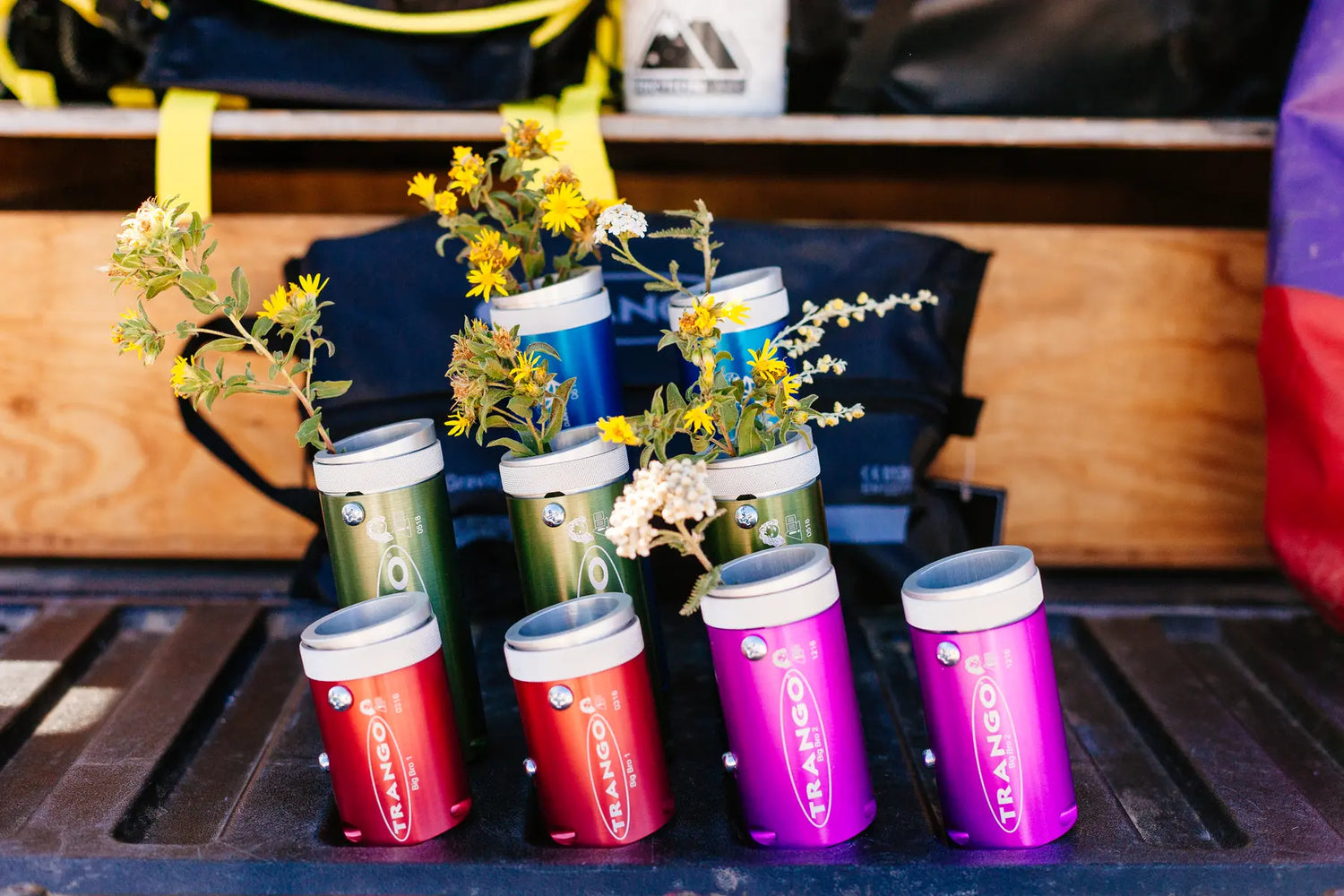Understanding Gear: How to Choose a Quickdraw
When it comes to quickdraws the concept is simple: two carabiners connected with a sling. But once you start shopping, choices of lengths, materials, carabiners, and features can be overwhelming. In this guide, Trango Tech Rep Dylan Connole breaks down the four main types of draws—and explains which style excels in sport, alpine, trad, and anchoring applications.

Sport/Project Draw: Reaction Quickdraw with deep-gate carabiners for effortless clipping.
1. Sport / Project Draws
With a priority on handling rather than weight, these draws make clipping much easier. Stiff dogbones and deep-gate carabiners help rope drop straight in. Our Reaction Quickdraw (available in 12 cm or 17 cm) features enhanced grip points and gate baskets to guide the rope during those pumped redpoint burns.
Crossover Draw: Phase Quickdraw with lightweight Dyneema sling.
2. Lightweight Crossover Draws
Ideal for both sport and alpine, these save weight on your harness without sacrificing strength. Our Phase Quickdraw uses a low-bulk Dyneema dogbone and is rated to 22 kN—available in 12 cm or 18 cm.
Alpine Draw: Extended Phase Alpine Draw for reduced rope drag.
3. Alpine Draws
When rope drag or sharp edges threaten your line, extendable slings are a must. Pre-made Phase Alpine Draws or a custom setup with 120 cm of Low Bulk Sling give you the versatility you need on long alpine pitches.
Locking Draw: Superfly Evo carabiners on a Tough Dogbone for secure anchors.


